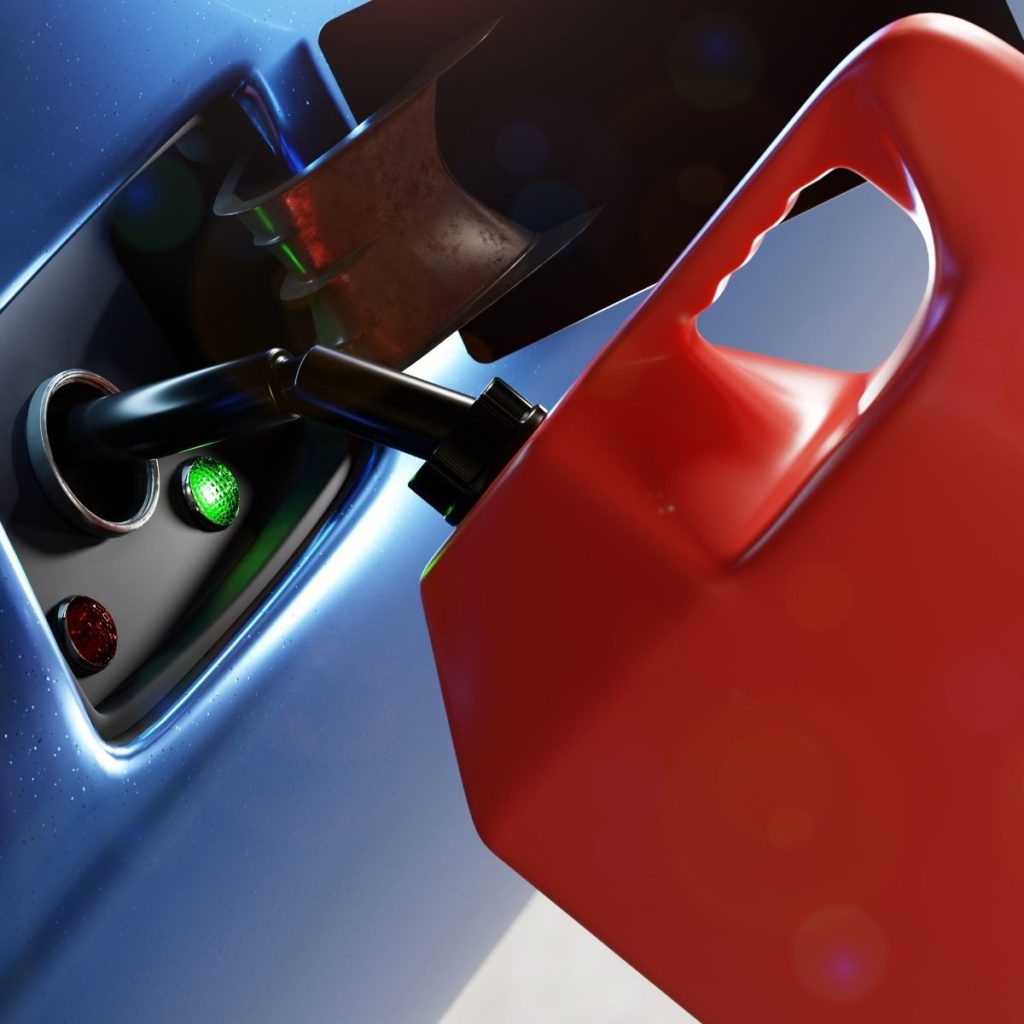Disclosure: This post may contain affiliate links. This means that at no cost to you, we may earn a small commission for qualifying purchases.
Last Updated on April 7, 2024
Generators are the backbone of disaster preparation systems that each and every one of us should always practice. For those of us who own our own generators, maintenance is key so that we have a functioning backup power source at all times. Many people assume that generators run on gasoline.
But that’s not entirely accurate. Aside from Solar and giant battery generators like the Tesla Powerwall (which technically don’t count), generators can run on gasoline, diesel, propane, natural gas, and Bi-Fuel/Tri-Fuel.
Some generators will even run off of dual-fuels, such as propane and/or gasoline, such as the immensely popular Duromax XP12000HX. It’s not the only one; it’s just the most well-known. The Duromax is considered a bi-fuel and there are others that are considered tri-fuel as well.

Contents
Tri-Fuel and Bi-Fuel Generators
If you live on the Gulf Coast, then you know what happens when a hurricane even looks like it may have taken a glance at the Gulf of Mexico, every gas station in every town, city, and county is going to see a massive and hysterical rush on the gas pumps.
This is when tri-fuel and bi-fuel generators really earn their cost. When gasoline is in short supply, you have other gas options that you can turn to. If you are adequately prepared for a disaster, then you will already have the gasoline to be your first resource expenditure.
By the time the gasoline has run its course through your generator, you have propane or natural gas to carry you the rest of the way over the finish line. The Winco Tri-fuel Generator is a prime example of being prepared with three, separate fuel sources.
Gasoline Generators
The biggest positive for gasoline-only generators is that they are generally the cheapest generators that you can buy. If you’re adequately prepared for any disaster or power outage, you will have plenty of fuel on standby.
Living on the Gulf Coast makes it imperative to set aside a few, five-gallon gas canisters when hurricane season rolls around so you can avoid the maniacal rush on gas stations when there’s a hurricane just west of Africa.
These do come with more maintenance and upkeep, so it’s always important to stay on top of preventative maintenance measures. One of the best examples of a great, gas-fed generator is the Westinghouse WGen7500.
See Also: How Long Will a Generator Run on 5 Gallons of Gas?
Propane Generators
LPG generators (Liquid Petroleum Gas) are similar to grills in that they require a tank that is separate from the generator. Of course, this makes sense because of the strict regulations on propane tanks and it would be difficult to get a refill by hauling your entire generator around.
It actually works out great because once you get the generator on the ground, where it’s going to permanently reside, you can simply stack up the full propane tanks around it and pop them on as you need them.
The Cummins Onan QG 5500 is a prime example of an excellent propane generator. While propane doesn’t degrade in storage, like diesel and gasoline, it is not as efficient as either.
See Also: How Much Propane Gas Does A Generator Use Per Hour?
Natural Gas Generators
Natural gas generators have the cleanest emissions out of all of them and you can connect them directly to existing, natural gas pipelines. If you already have natural gas coming into your home, this is an excellent way to tie in and run the appliances that natural gas doesn’t normally run.
Unfortunately, although you won’t have near the maintenance on these as you would on a gasoline generator, the maintenance costs on a natural gas generator are enormous in comparison. You don’t want one of these things to break down on you.
Since they are largely odorless and highly explosive, it goes without saying that you don’t want a leak in your home. The Generac PowerPact 7500-Watt natural gas generator is a great example of a budget-friendly generator.
Frequently Asked Questions
What are the disadvantages of generators?
Depending on the fuel type, there are numerous, small disadvantages. However, the primary disadvantage is that unless you own a gigantic generator, you’re not going to be able to keep your whole house going and will generally have to be selective.
Is it safe to run a generator overnight?
It is generally safe to run a generator overnight, especially if you have crucial devices that need the power. However, if you have neighbors, gas and diesel generators may bring you into conflict because of the noise.
How far from the house should a generator be?
You should always try to keep your generator at least 20 feet from the house, if possible.
Do generators need a rest?
Only when refilling a gasoline generator. The heat from the motor could be enough to ignite the gas, so you want to wait for it to cool down some.
Can rain damage generators?
Mostly no, however, you don’t want to leave a generator out in the rain because the electrical outlets will be exposed and that is where the danger lies.
Related: 7 Best Generators for Boats